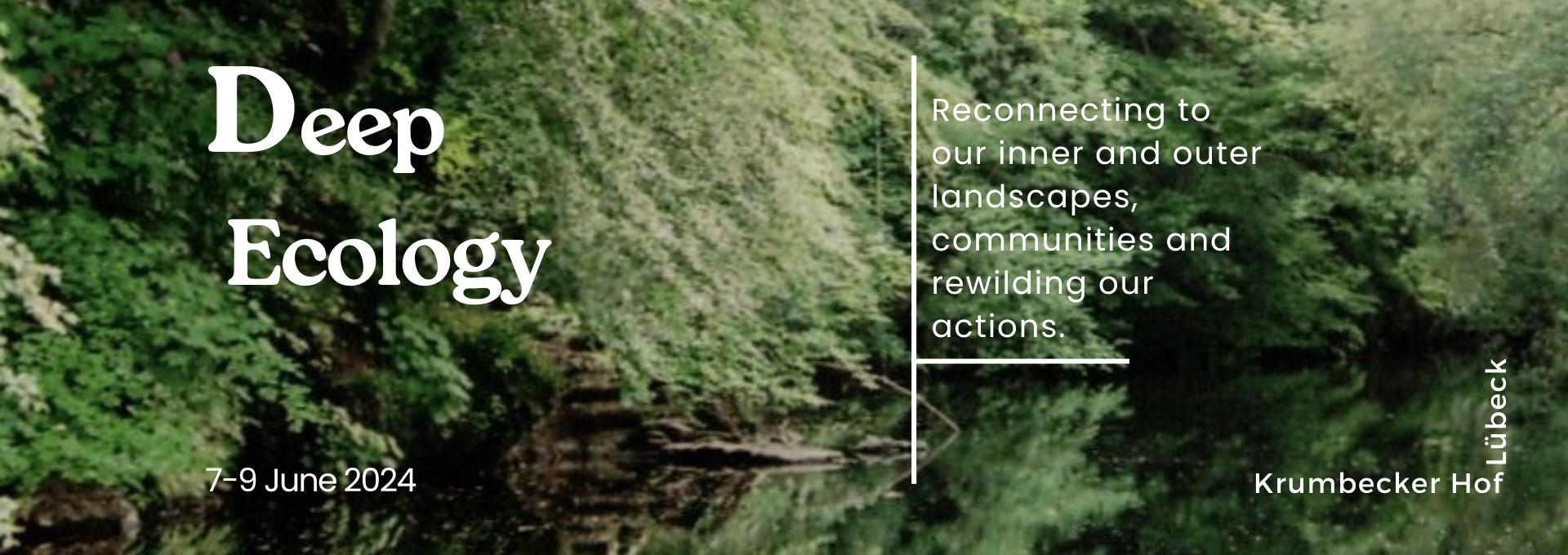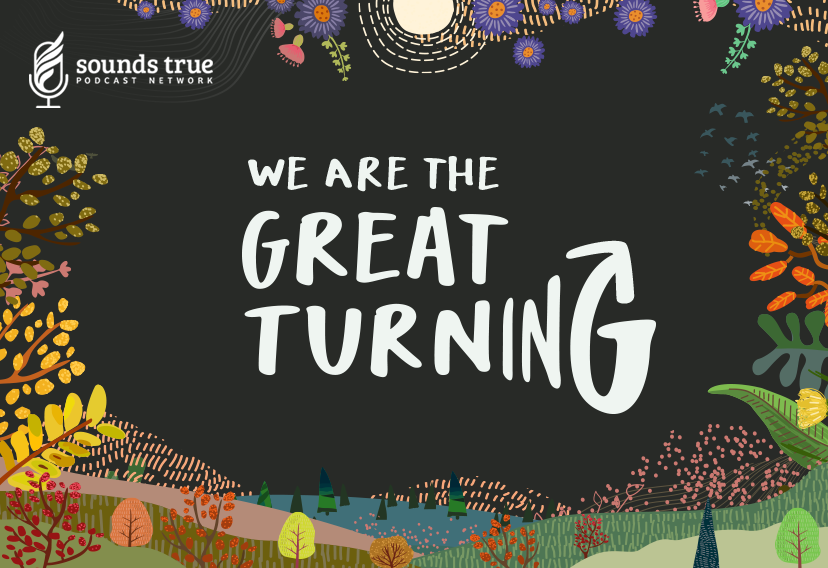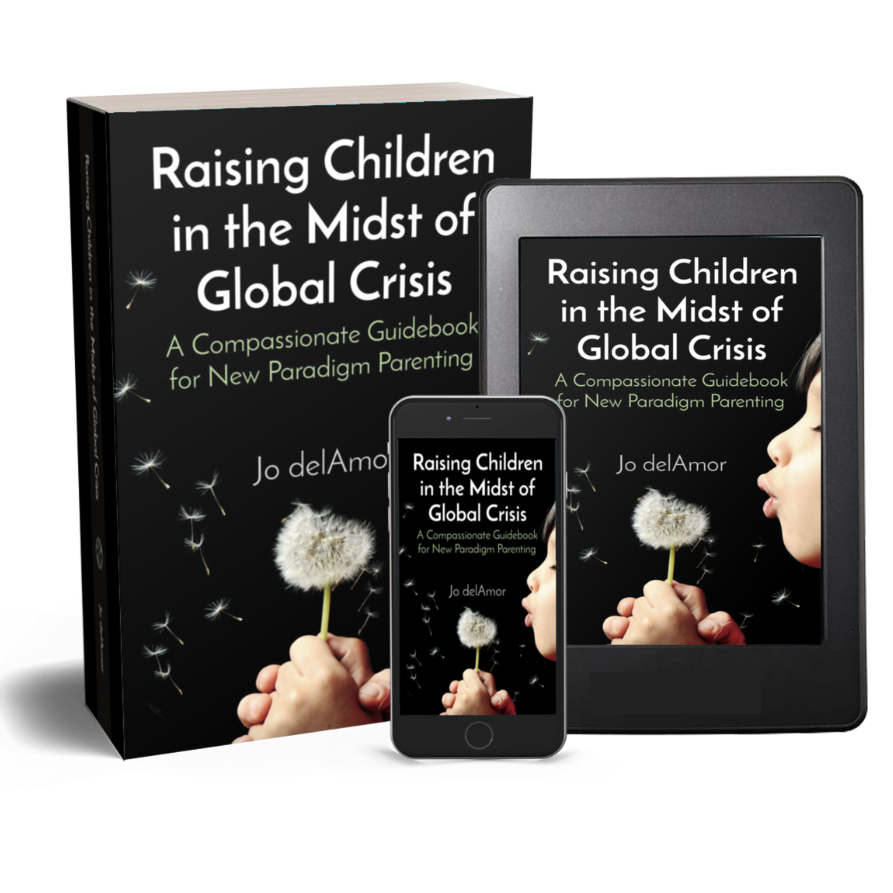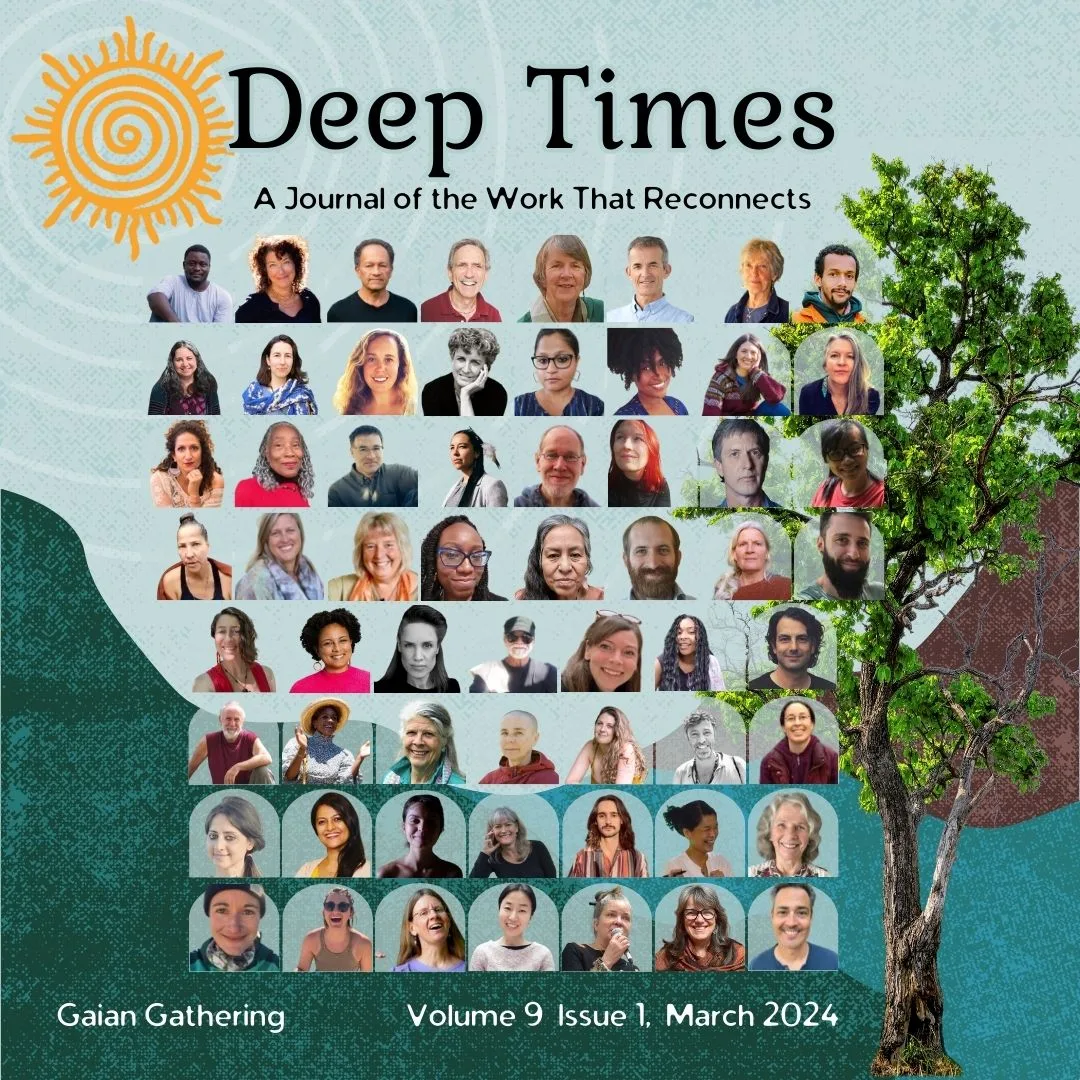- Foundational Material
- Deep Time
- Emerging Facilitators
- Facilitators
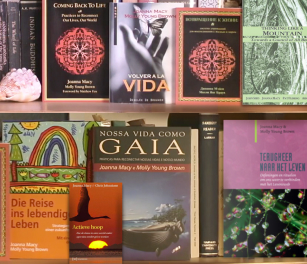
Understanding Deep Time
from chapter 9 of Coming Back to Life by Joanna Macy and Molly Brown; second edition, published 2014. Please acknowledge the source when sharing this content.
People of today relate to time in a way that is surely unique in history. The technologies and economic forces unleashed by the Industrial Growth Society radically alter our experience of time, subjecting us to frenetic speeds, and severing our felt connection with past and future generations.
The Industrial Growth Society and the technologies it requires depend on decisions made at lightning speed for short-term goals, cutting us off from nature’s rhythms. Time, both as a commodity and an experience, has become a scarcity. It is a painful irony that we who have more time saving devices than any culture in history are the most time-harried and driven. The paradox is only apparent, however, for our time scarcity is linked to the very time-efficiency of our technology. Measure of time, once based on changing seasons and wheeling stars, then much later the ticking of the clock, is now parceled out in nanoseconds. We have lost time as a biologically measurable experience.
Marooned in the present, we are progressively blinded to the sheer on-goingness of time. Both the legacy of our ancestors and the claims of our descendants become less and less real. Our culture’s readiness to demolish treasures of the past, and to permanently poison the aquifers the future ones will need, reveals a pathetically shrunken sense of time and a pathological denial of its continuity.
Psychiatrist Robert J. Lifton argues that the development and use of nuclear weapons has crippled our capacity to imagine a long-term future. The import of climate disruption has a similar effect. Lifton calls it the broken connection. “We are thus among the first to live with a recurrent sense of biological severance.”
This peculiar relation to time is inherently destructive of the quality and value of our lives, and of the living body of Earth. And it will intensify because the Industrial Growth Society is, in systems’ terms, on exponential “runaway” – accelerating toward its own collapse.
To Reinhabit Time
Even as we see its consequences, this relation to time is not innate in us. As humans we have the capacity and the birthright to experience time in a saner fashion. Throughout history, men and women have labored at great personal cost to bequeath to future generations monuments of art and learning, to endure far beyond their individual lives. And they have honored, through ritual and story, those who came before.
As we take part in the Great Turning to a life-sustaining society, we learn to act like ancestors of future generations. We attune to longer ecological rhythms and nourish a strong felt connection with past and future beings. For us as agents of change, this isn’t easy, because to intervene in the Industrial Growth Society, we can’t avoid falling into its tempo. We race to find and pull the levers before it is too late to save this forest, or stop that weapons program. Nonetheless, we can learn again to drink at deeper wells.
Deep Time work has arisen for that express purpose: to refresh our spirits and inform our minds by experiencing our present lives within larger contexts of time.
